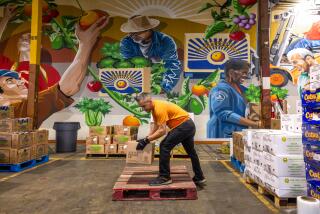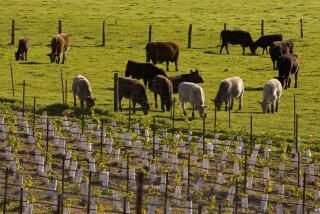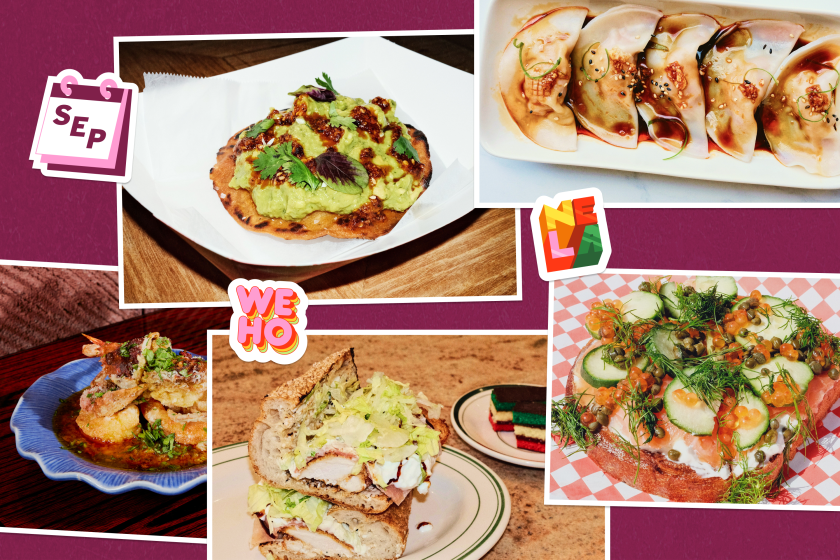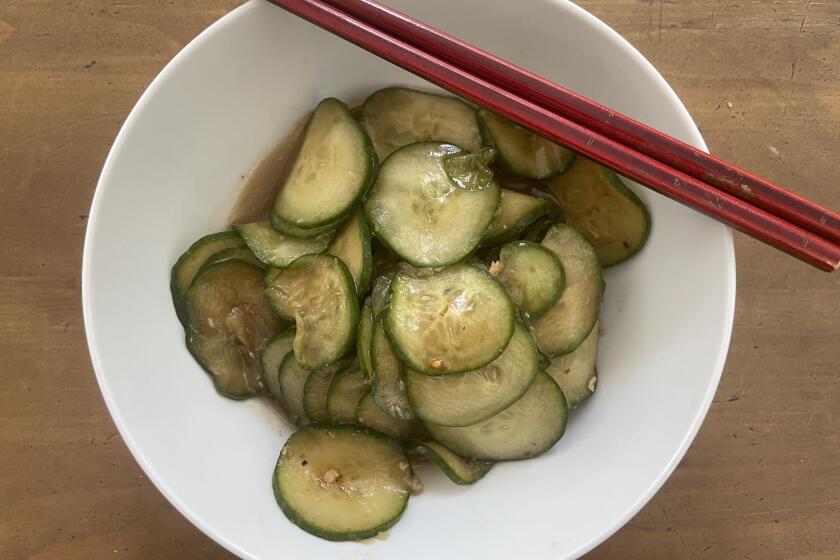Your local farm in a box: How farmers are coping with the crisis
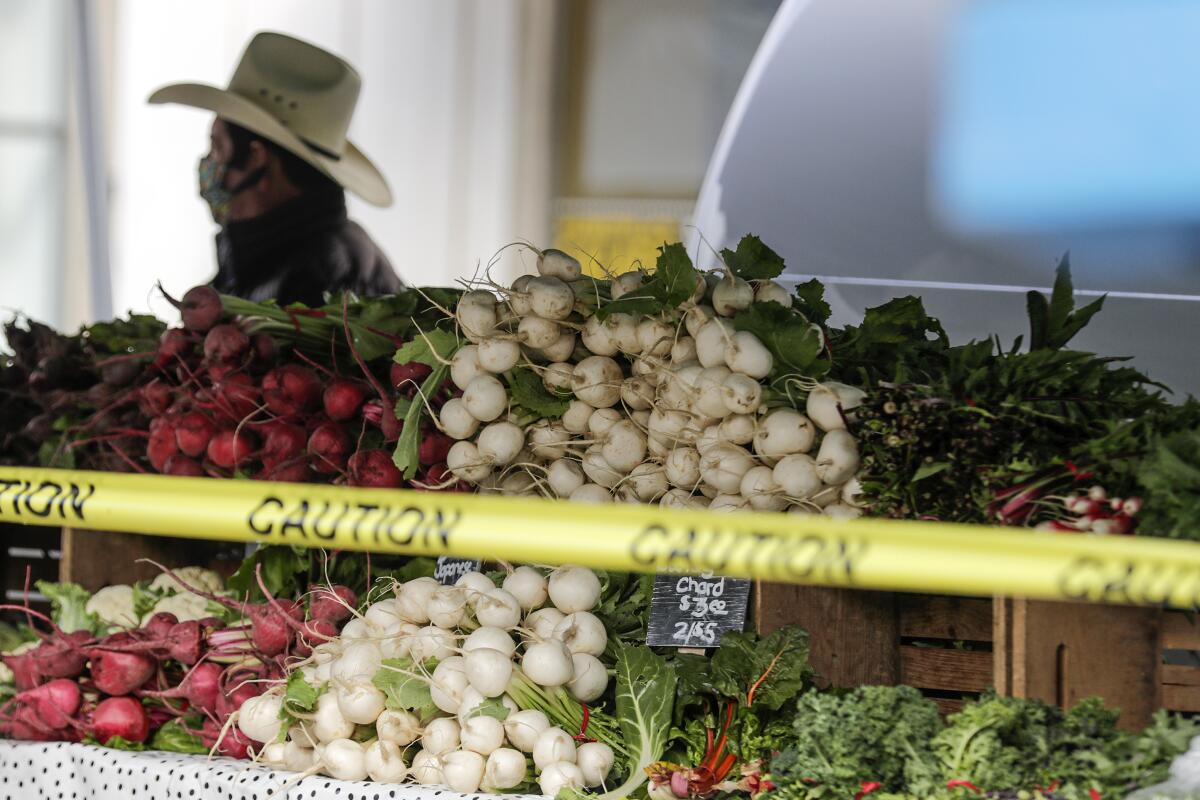
A recent line to get into the Wednesday Santa Monica farmers market stretched down Wilshire Boulevard, giving shoppers — masked and six feet apart — a splendid morning view of the Pacific. Life at the market, for buyers and sellers at the almost 40-year-old city institution, is now a waiting game.
Inside, farmers — masked and gloved — and their rows of produce are separated from the public (who has regrouped into new lines) by barricade tape stretched around their individual stands. It’s a sun-drenched, fragrant agricultural crime scene.
Specialty farms, like those at this market, have, over the last 15 years, come to rely on a model where they sell the large majority of their produce to restaurants rather than home cooks. When COVID-19 hit, that market dried up.
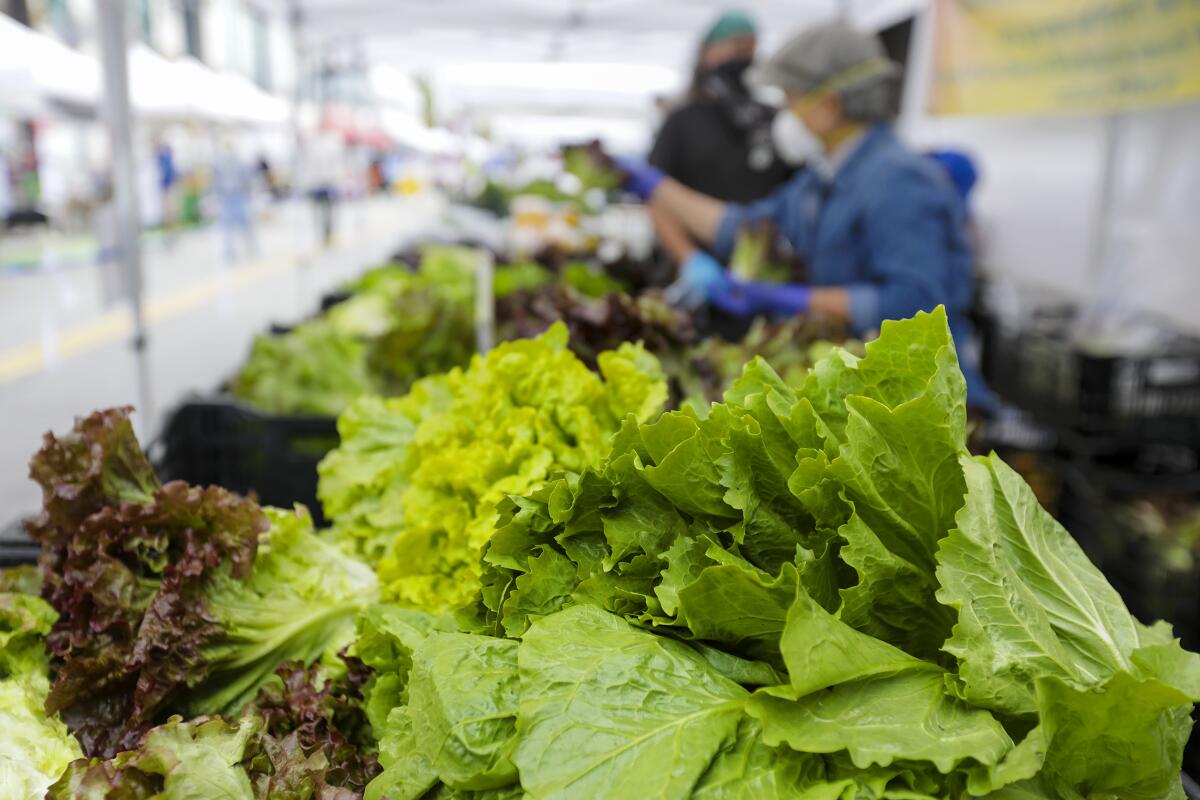
Romeo Coleman of Coleman Family Farms in Carpinteria said he has lost 60% to 70% of his business since restaurants were ordered to stop dine-in service in mid-March. Now, like many other farmers, Coleman has transitioned to selling his produce — lettuces, herbs, spigarello and cavolo nero — in CSA-style boxes and to Edible Gardens LA, a garden business that recently began distributing produce from farmers.
In 2½ weeks, Edible had 1,200 people sign up for boxes, which it sells and distributes without contact, dropping boxes on porches and driving away. Edible, run by gardener Lauri Kranz and her husband, Dean Kuipers, sells the boxes for $65 and up. Kranz said the contents can feed a family for a week.
The idea of getting your just-picked farm produce in a cardboard box was popularized in the 1980s, when European farmers brought the Community Supported Agriculture (CSA) model to this country. The box model is one that has particular significance now: It’s a safe way for shoppers, self-quarantined at home, to get fresh produce and farmers can sell what most needs to be picked in larger amounts.
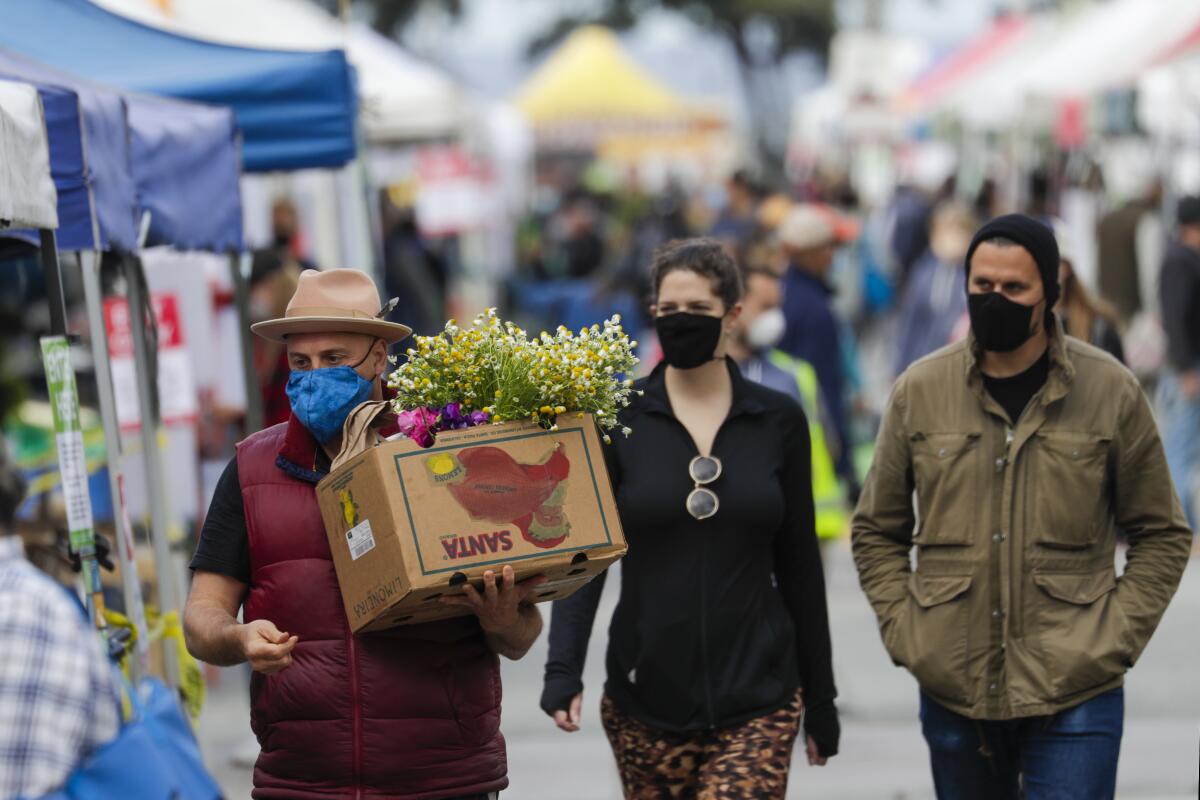
Before the shutdown, Debbie Takikawa, who, with her husband, operates The Garden Of... on 70 acres in Santa Ynez Valley, said more than half of the farm’s income came from wholesale restaurant accounts. “We’re selling almost 500 boxes a week right now. It gets packed at the farm, into plastic bags, then a box, and goes down to L.A. in refrigerator trucks and then delivered.”
Takikawa said that she’s paying her rent, making payroll and keeping everybody employed but that her farm has had to change its planting schedule and entire business model.
“If we can break even, that’s fine,” she said. “If I can just make payroll, if we can just eat, the rest of it. Success is just staying afloat.”
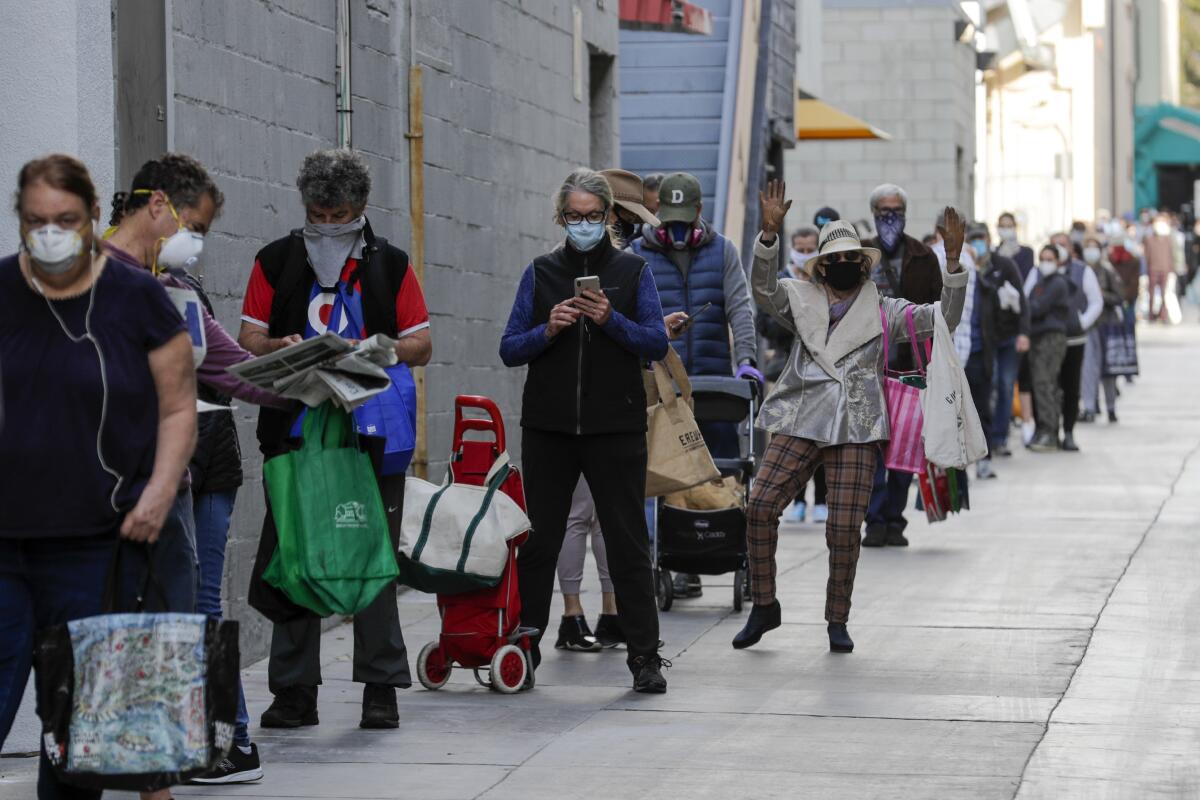
Like the Takikawas, County Line Harvest, a farm that encompasses 120 acres in Thermal and 30 acres in Petaluma, pivoted quickly to boxes. There were few options, farmer Megan Strom said.
Last week County Line sent close to 4,000 boxes to Los Angeles — including to Röckenwagner Bakery, which is selling up to 500 of them a week — and 1,400 boxes north to Sonoma. They’re also coordinating with restaurants to provide free boxes to out-of-work staff and working on a way to accept food stamps.
“We’re pretty hardened already,” Alex Weiser of Weiser Family Farms in Tehachapi said of farming, a profession used to living on the edge, subject to disastrous weather, pestilence and crop failures. “Farmers are gamblers. We’ll have to wait and see.”
Weiser is selling to CSAs, delivery services, small groceries and to Edible Gardens LA.
One advantage of the boxes for farmers is that they can pick, quite literally, and choose what goes into them, packing the produce that needs to move, which helps keep down costs. But boxes are much more work and, for most farmers, nowhere near make up for the lost sales.
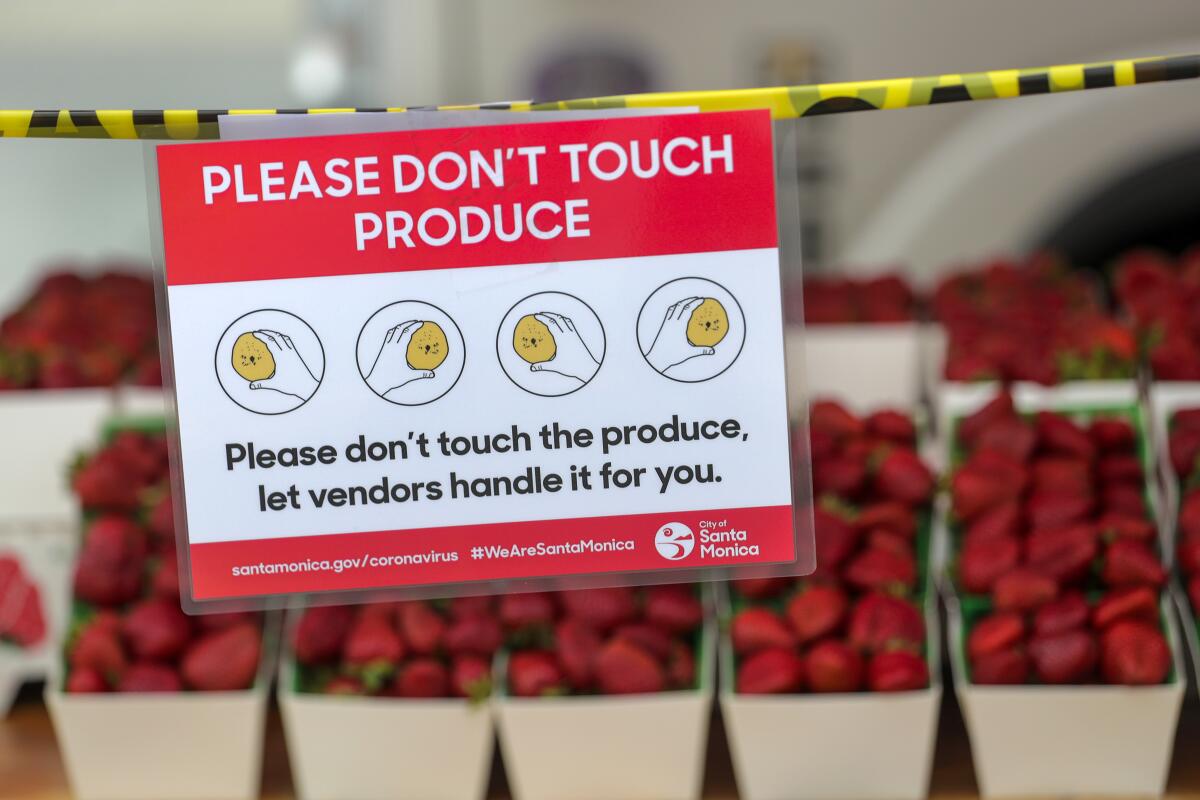
“The boxes are a logistical nightmare,” said Andrew Gibson of Sunrise Organic Farm in Lompoc, who’s recalibrating his farm to a CSA model. He has created a website to sell custom boxes of his produce and arranged delivery points in empty L.A. parking lots, where he and his staff can load boxes directly into shoppers’ trunks.
“You have to prepare for the worst-case scenario — it’s part of farming,” he said. “There’s always a hundred disasters or fires to put out. This is just one more to add to the list.”
“All we’re doing is boxes,” said Barbara Spencer of Windrose Farm outside of Los Robles. They make up the boxes, at the farm and deliver them to drop points in Los Angeles including Lady & Larder in Mar Vista, Psychic Wines in Silver Lake and Colapasta in Santa Monica. The boxes, which can include herbs, greens and edible flowers, sell for $30. A $45 option includes citrus and avocados from nearby Mud Creek Ranch in Santa Paula. 75% of Windrose Farm’s business went to restaurants, according to Spencer, “and we lost all of that because the places we sold were the white tablecloth.”
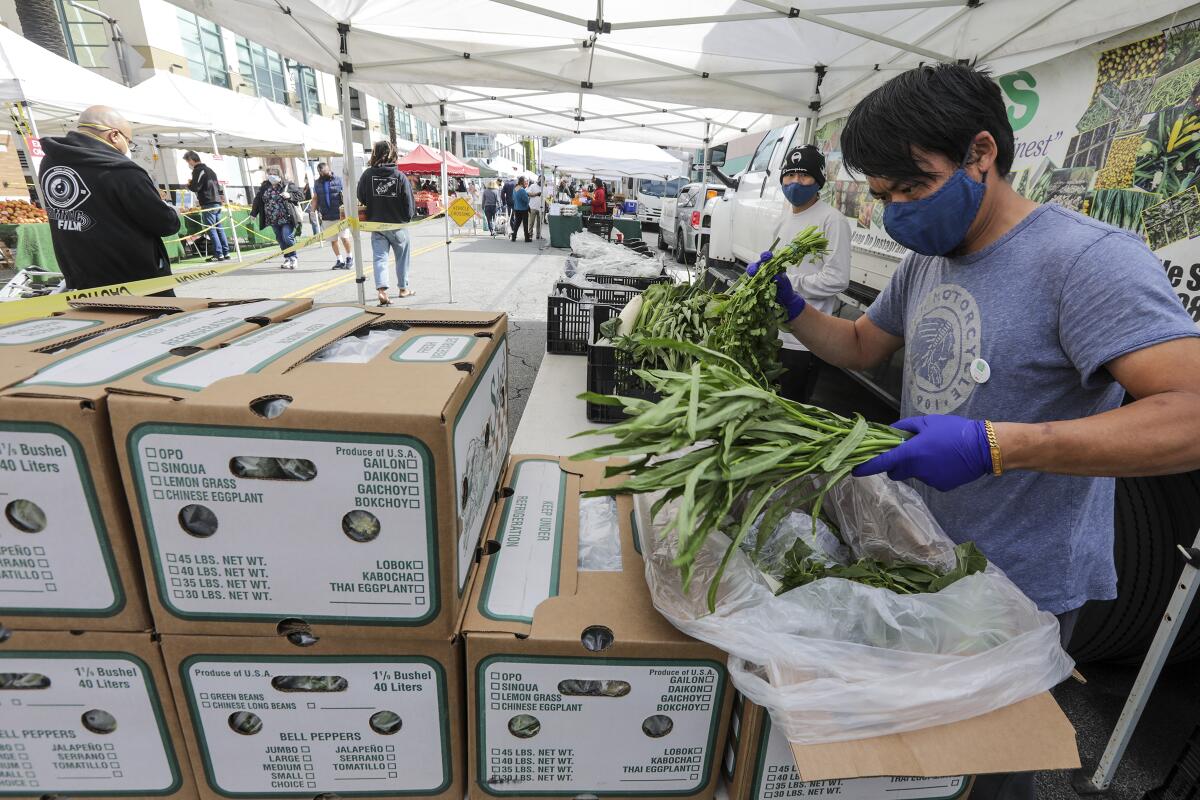
At the Saturday market, boxes from Thao Family Farm in Fresno were stacked like a cardboard retaining wall next to farmer Kong Thao’s stand. An open box displayed what’s inside: a forest-green jigsaw of Thai basil, fennel, leeks, amaranth and more, selling for $40 per box. That weekend, said Thao, he and his brother will sell 300 of them.
“This is a really good Band-Aid. We’re getting by,” said Thao. “But two or three years? It’s not doable.”
More to Read
Eat your way across L.A.
Get our weekly Tasting Notes newsletter for reviews, news and more.
You may occasionally receive promotional content from the Los Angeles Times.

